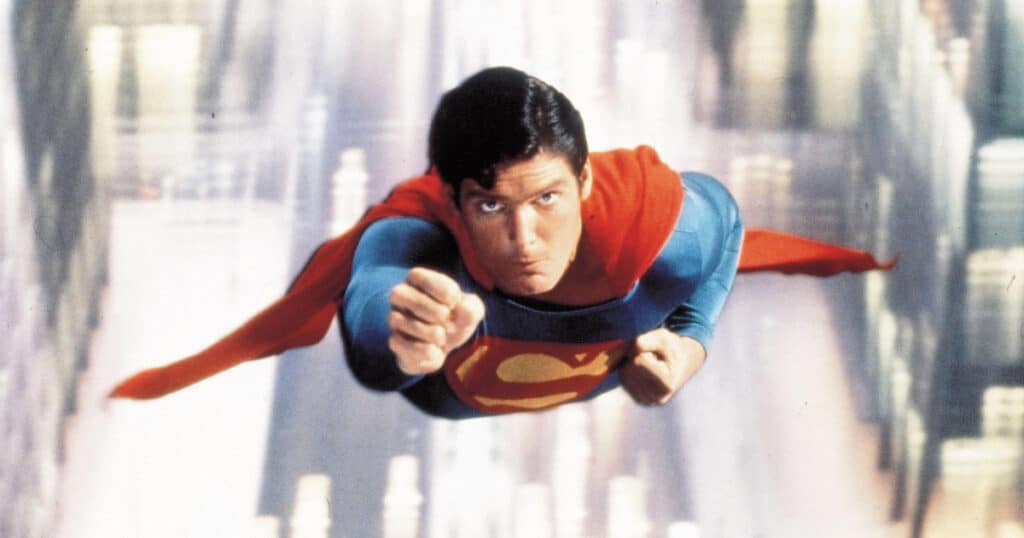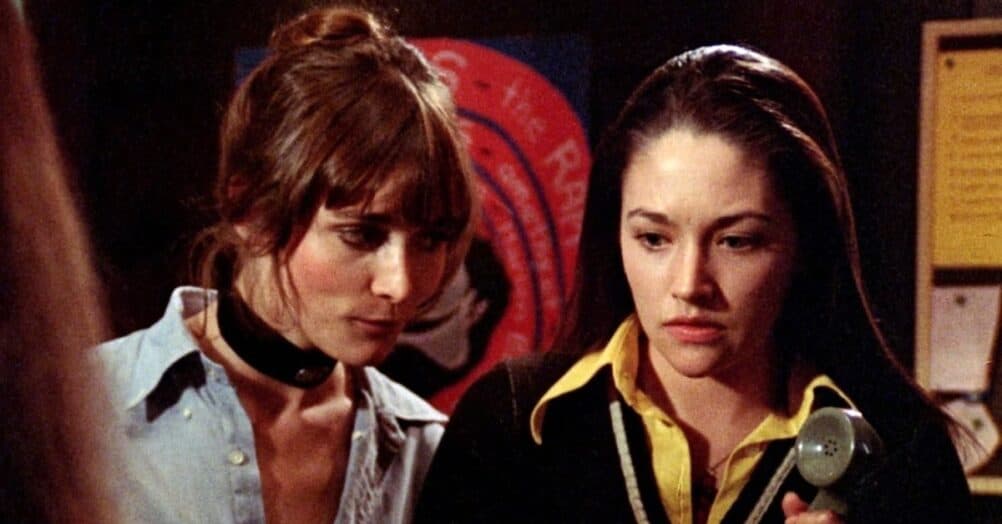PLOT: A deep dive into the life of Christopher Reeve, from his overnight stardom as Superman through to his life after the tragic accident which left him a person with quadriplegia.
REVIEW: When I heard Sundance would be showing a documentary about the life of Christopher Reeve, I correctly assumed that it wouldn’t leave a dry eye in this house whenever it was screened. Indeed, as the premiere screening wound up, the sobs from the audience were pronounced, and Super/Man: The Christopher Reeve Story is certainly a heartbreaking experience. Now that the film is getting a limited theatrical run (from Fathom Events), with an expansion rumoured for later this month, fans everywhere will get to shed a tear and be inspired by this icon.
Directors Ian Bonhôte and Peter Ettedgui wisely adopt a non-linear style to tell Reeve’s story, opening with his accident, which came at a time when he was trying to rebuild his career following the disastrous end of the Superman franchise with Quest for Peace. Only a year before his devastating fall, he had a good role in Merchant/Ivory’s The Remains of the Day, but one of his sons freely admits that at the time of the accident, he was doing movies of the week to pay the bills.
Reeve’s ordeal is depicted in a harrowing fashion, never shying away from the fact that until the day he died, he was fighting to one day get out of his wheelchair. Yet, Reeve accomplished a lot after his accident, increasing funding for spinal cord injury research while also trying to improve the quality of life for those afflicted with his condition.
More than anything, the film zeroes in on his relationship with his wife, Dana Reeve, who became his tireless advocate. In a tragic twist of fate, she died of cancer only two years after her husband, orphaning their child, Will Reeve, who is the spitting image of his father.

If you’re coming to the film looking for a lot of insight into the making of the Superman movies, you won’t find that here, as that territory has been covered elsewhere (including by us). There’s not much about how fraught the shooting of the first film was, but the movie does pay special tribute to director Richard Donner, who was always Reeve’s advocate, both in the role and even after the Salkinds replaced him. Still, it’s a bit weird that Margot Kidder barely gets a mention, with their chemistry an important but ignored part of what cemented his legacy as Superman.
The documentary tries to present an honest account of Reeve’s life before the accident – warts and all. An old interview clip from The Tonight Show demonstrates his contempt for actors like Marlon Brando, who he said took his paycheck from making Superman without caring about his performance’s quality (he was probably right about that, though). At the same time, his son Matthew reveals that on the day of his birth, Reeve decided to go to France and ski with friends rather than be there for his partner at the time – Gae Exton, – which doesn’t reflect too well on the Man of Steel. But, as Reeve himself freely admits in interview clips, he never pretended to be perfect. For him, Superman was just another role until it took on more resonance following his accident.
Bonhôte and Ettedgui also dive into how Reeve, to his dismay, was never able to achieve significant success with any role beyond Superman, with him opting to look for roles that would cast him against type but always failed with critics and audiences. Some movies, such as Somewhere in Time, were good, but others, like Monsignor, were abysmal. The declining quality of the Superman movies is also referenced. However, there’s little insight into why they were so bad, which would be exciting territory for someone else to explore.
Yet, the film ultimately presents an inspiring account of Reeve’s second act in life, where his humbling accident made him a tireless advocate and strengthened many. One of the most heartbreaking threads in the doc relates to Reeve’s friendship with Robin Williams. We learn how the Reeve family struggled to make ends meet when faced with his substantial medical bills (over $400,000 a year) and how Williams and his wife, Marsha, often stepped in. Glenn Close also says, in an interview clip, that she believes Williams would still be alive today if Reeve were.
In the end, Super/Man: The Christopher Reeve Story is similar to Still, the documentary about Michael J. Fox that played here last year. Like that one, it embraces Reeve’s positive effect after his accident but doesn’t shy away from the often grim reality of his day-to-day life. It’s more honest about that aspect than other movies are, and it’s better for it.





















Follow the JOBLO MOVIE NETWORK
Follow us on YOUTUBE
Follow ARROW IN THE HEAD
Follow AITH on YOUTUBE